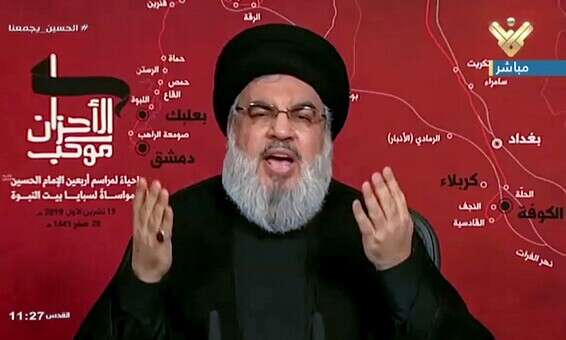
It seems that Hezbollah sought to deter Israel, and to fulfill Hassan Nasrallah’s old commitment to hit Israeli aircraft operating in the country. It may also have been a late attempt to charge a price for the organization’s active killing in an air force attack on Damascus airport last summer, which led to border tensions that lasted several months.
Estimates that sounded yesterday as if Hezbollah had acted to signal to the Biden administration that it should hurry up and remove the sanctions on its patron, Iran, sound less plausible. If the opposite is already true: the Iranian interest is for the sector to be quiet. Israel in particular has an interest in linking Hezbollah terrorism to the nuclear deal.
The launch at the “Zik” UAV was apparently carried out from Russian anti-aircraft batteries previously smuggled into Lebanon. Hezbollah has used them sparingly so far, both to not provoke Russia’s anger and to preserve this strategic weapon for a rainy day.
It is not clear, therefore, why the Air Force has refrained from automatically destroying the battery it has served, as it does frequently in the attacks attributed to it in Syria. Air weapons have been defined for years as a “breach of equality” (along with precision rockets and beach missiles), and Israel is making a tremendous effort to prevent its transfer to Hezbollah – which is interested in disrupting Israel’s air superiority in Lebanon routinely, and certainly in a future campaign.

The long deliberations yesterday regarding the nature of the reaction also conveyed some hesitation: Hezbollah carried out an offensive action, which goes beyond any convention. Avoiding a sharp reaction signals to him that his action was acceptable, and he will act again. This is a dangerous process of habit that is well known from years of rocket launches from Lebanon and Gaza. This is a process that erodes deterrence, and ends up requiring Israel to respond much more harshly that could inevitably lead to a broad escalation.
Of course, a reaction now could also lead to an escalation. This is a calculated risk that Israel must take into account, even at the cost of a few days of fighting in the north. Hezbollah will certainly derive its conduct from the nature of the response, although it is also difficult for it to identify an interest in escalation now. Lebanon is in an economic and health collapse, and Hezbollah is preoccupied with internal problems and it is doubtful whether it will gain public sympathy if it drags Lebanon into a bloody clash.
The launch yesterday shows that it is doubtful whether Hezbollah understood the message. Although he has avoided initiated escalation, he seeks to challenge and sting Israel, as well as to form new rules in the region. It seems that the IDF needs to sharpen the messages conveyed to it, and what has not been understood so far in words is now clarified with missiles.